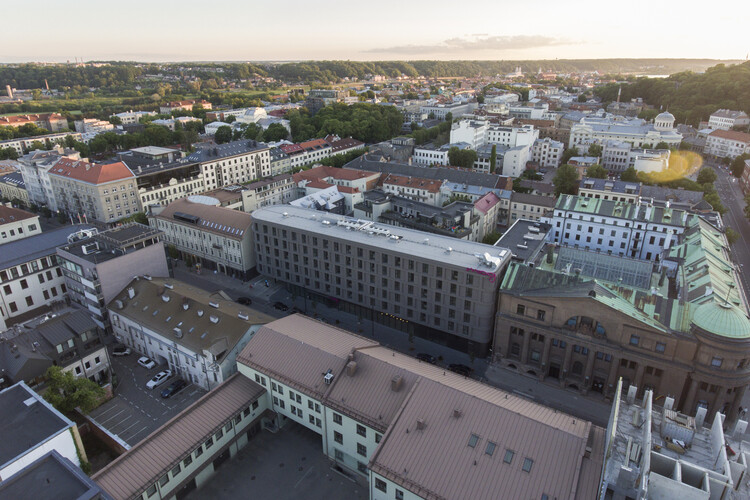
-
Architects: Architectural Bureau G.Natkevicius & Partners
- Area: 5819 m²
- Year: 2020
-
Photographs:Lukas Mykolaitis
-
Manufacturers: JUNG, Reynaers Aluminium, Atlas Schindler, Menu, &Tradition, Baumit, DESIGN HOUSE STOCKHOLM, Dimplex, Gan, HAY, INCLASS, MOROSO DIESEL, Muuto, Pedrali, SELETI, Sancal, Theca
-
Lead Architects: Agnė Natkevičiūtė, Adomas Rimšelis, Paulius Narauskas, Gintautas Natkevičius
-
Interior Designers: UAB Ryčio Čimkaus Studija BALT-A, Agnė Kirslienė, Rytis Čimkus, Sandra Žukauskė
-
Structural engineers: UAB Constr, Adomas Sabaliauskas, Domas Amolevičius

Text description provided by the architects. Hotel Moxy Kaunas Center, belonging to the international chain Marriott, is the first Moxy hotel in the Baltic States. The main customers are guests - both leisure travelers and young business people - staying at the hotel for 2-3 nights. In order to meet the needs of modern travelers and the fast pace of life, the premises are fully equipped for comfortable work, meetings, and leisure, which allows guests not only to spend a great time but also to work or hold necessary business meetings without even leaving the hotel.




























